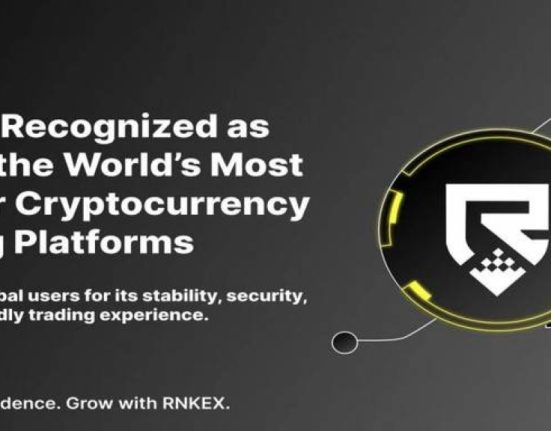This month, approximately $529K in bitcoin hit the digital wallet of Miami-based developers Rilea Group and Cipres. In exchange, they handed over the keys to a luxury condo unit at their under-construction The Rider Residences near the Wynwood neighborhood.
It was the group’s first direct wallet-to-wallet cryptocurrency transaction and among the few instances in which bitcoin has been used to trade real estate despite a bull run in 2020 and 2021.
“Even our attorneys were somewhat uneasy,” Rilea Group President Diego Ojeda said. “We do think that right now is the right moment to really be embracing this in the sense that we have less to worry about. It’s becoming a much more common concept that you’re even hearing from the White House.”

Following the initial frenzy around the cryptocurrency bubble and then a string of controversies, digital tokens were tossed away like pocket change by the old-fashioned real estate industry. But following widespread adoption of new tech such as artificial intelligence and a presidential administration open to creating a regulatory framework, the crypto bros are back, for real this time — or so they say.
“People have progressed in age, have progressed in life, and it’s the next generation,” Okada & Co. CEO Christopher Okada.
Okada is marketing a Manhattan office building he owns for $28M and says he will accept crypto as payment. It’s the same building he listed as a nonfungible token in 2022, weeks before the market crashed.
“Everyone who was involved [in Web3] in their 20s and 30s are now in their 30s and 40s,” he said. “This is not some crazy foreign thing the way it was 10 years ago.”
A series of investment vehicles tying commercial real estate to cryptocurrency have launched in recent months and several lenders have leaned into the market. That’s expected to mushroom in the coming years, with the Deloitte Center for Financial Services predicting that $4T of real estate will be tokenized by 2035, increasing from less than $300B in 2024.
In the past six months, the price of bitcoin has surged 40% supported by President Donald Trump’s promise to create a regulatory framework for digital assets. In March, he signed an executive order allowing the government to treat bitcoin as a reserve asset as well as stockpile other digital assets.
Last year, SteelWave started a $500M fund that allows investors to convert their limited-partner stakes in commercial properties into digital tokens for investment. In December, the same day that Bitcoin’s price surpassed the $100K milestone for the first time, Grant Cardone announced his real estate-bitcoin hybrid fund. And following a year-long regulatory review, Robert Ventures launched a Securities and Exchange Commission-qualified bond offering combining real estate development and digital assets in February.
A group of former employees of crypto exchange firm Kraken this month acquired majority ownership of commercial property financing platform Janover and changed its name to DeFi Development Corp., evolving into a crypto treasury vehicle designed for public market investors.
In January, Hankey Group created a program that allows digital coin holders to use Bitcoin as collateral to access financing for real estate, eliminating the need for cash down payments.
Zito Realty LLC broker-owner James Zito is a Realtor and cryptocurrency-meta agent who uses Propy, a Web3 software that facilitates high-value transactions using crypto. The platform launched its escrow service, using Coinbase, in October.
“It’s just growing so quickly,” Zito said. “But I do see the change, and I see the confidence in it.”

President Donald Trump with “Crypto Czar” David Sacks and Bo Hines, executive director of the Presidential Council of Advisers on Digital Assets.
To some, the trend may feel all too familiar. During the pandemic, with stocks peaking and stimulus cash flowing through the economy, money was pumped into alternative investments. Larger companies like Robinhood and Tesla and influencers such as YouTuber Logan Paul and socialite Kim Kardashian further promoted digital tokens, bringing them into the mainstream.
Blockchain companies began leasing up office space, and firms like Jamestown agreed to accept rent payments in crypto, even from traditional tenants. Other Web3 tech ran wild, with commercial real estate NFTs and the metaverse capturing industry fascination.
That is, up until the bubble burst. Macroeconomic challenges, alongside scandals like the collapse of FTX, sent investors into a spiral, causing them to lose $2T in the 12 months following bitcoin’s November 2021 peak. That quickly slowed institutional adoption of crypto and blockchain technology to a crawl.
“People who believe in crypto, like the hardcore believers, are not moved by things like that,” said Eduardo Foss, chief operating officer of AI CRE firm Diald AI. “The problem is not so much demand, the problem is regulatory uncertainty. No one knows what’s right or wrong in terms of structuring an asset-backed coin.”
Today, the price of bitcoin is hovering around $95K. Still, many in commercial real estate, an industry that’s highly sensitive to uncertainty, remain cautious.
Prior to his sale at 94 NE 29th St. in Miami, Ojeda consulted his attorneys to limit any potential danger even if there are not yet any laws on the books. That includes hiring a company to ensure the money is clean, tapping an escrow agent that can work on crypto sales and creating an addendum for the sales agreement that states that the buyer assumes any risks if there are currency changes when the crypto is exchanged to USD.
Those extra steps have been worth it, he said.
“A crypto owner, who before was saying, ‘I’m kind of in the dark here and not really sure where I can put some of this money,’ Well, now there’s someone that isn’t shunning [them],” Ojeda said. “It’s a new buyer pool. These people, they don’t want to wait on banks, they don’t want to ask for permission.”
But, similar to gold, many investors who hold on to crypto don’t actually want to pay using crypto, said Bryan Routledge, associate professor of finance at Carnegie Mellon University’s Tepper School of Business. Plus, the radically different nature of both makes it difficult to merge the volatile nature of digital tokens with the illiquid essence of real estate.
“Real estate transactions are really complicated for a lot of reasons. They’re big, they’re lumpy, construction takes a long time, there’s a lot of riskiness out there,” said Routledge, whose research includes price stability mechanisms for cryptocurrency coins. “If we add in bitcoin or ethereum, does it change the transaction in a way that is helpful? That’s hard to see.”







